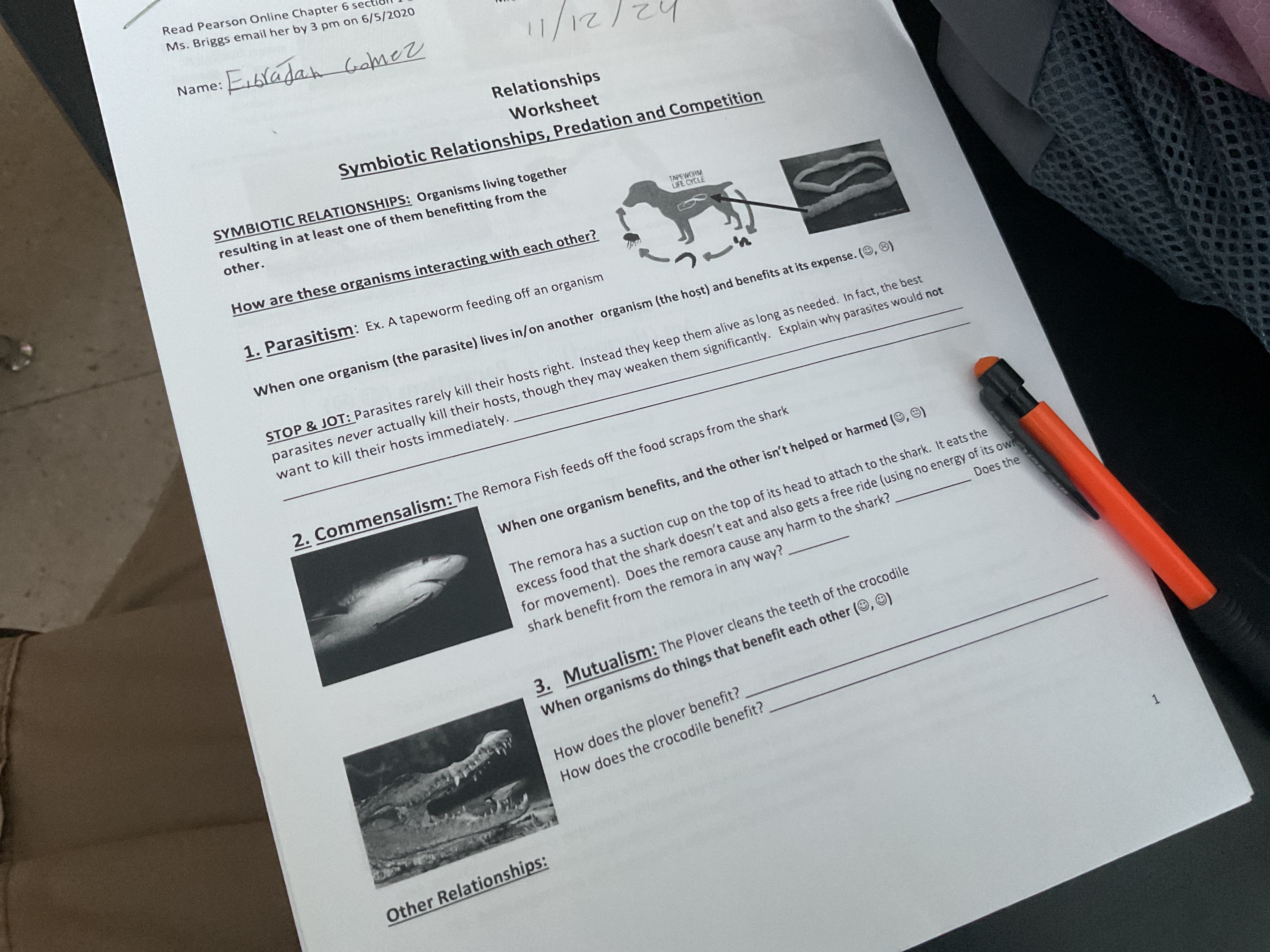How are these organisms interacting with each other? 1. Parasitism: Ex. A tapeworm feeding off an organism. When one organism (the parasite) lives in/on another organism. STOP & JO... How are these organisms interacting with each other? 1. Parasitism: Ex. A tapeworm feeding off an organism. When one organism (the parasite) lives in/on another organism. STOP & JOT: Explain why parasites would not want to kill their hosts. 2. Commensalism: When one organism benefits, and the other isn't helped or harmed. 3. Mutualism: When organisms do things that benefit each other.

Understand the Problem
The question is asking about different types of symbiotic relationships, specifically parasitism, commensalism, and mutualism. It requires explanations of these interactions and examples of organisms involved.
Answer
Parasites benefit more by not killing their hosts.
Parasites benefit from keeping their hosts alive because they rely on them for nutrients and shelter. Killing the host would result in the loss of these resources.
Answer for screen readers
Parasites benefit from keeping their hosts alive because they rely on them for nutrients and shelter. Killing the host would result in the loss of these resources.
More Information
Parasites often weaken their hosts but avoid killing them to maintain access to resources such as food and habitat.
Tips
A common mistake is assuming parasites always kill their hosts; however, long-term survival benefits them more.
Sources
- Symbiotic Relationships: Parasitism, Commensalism, and Mutualism - coursesidekick.com
AI-generated content may contain errors. Please verify critical information